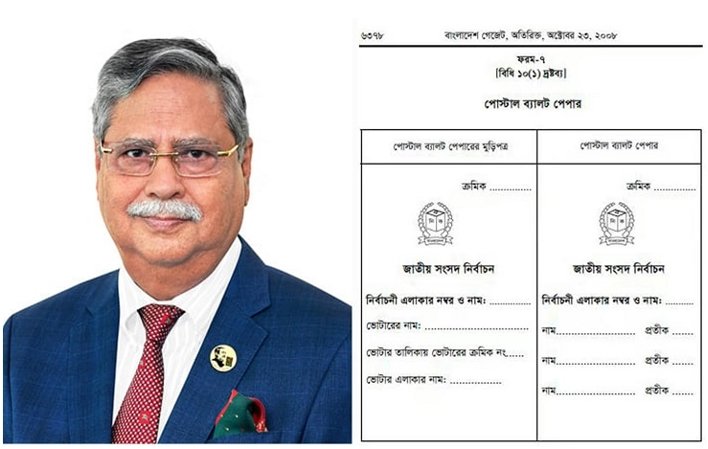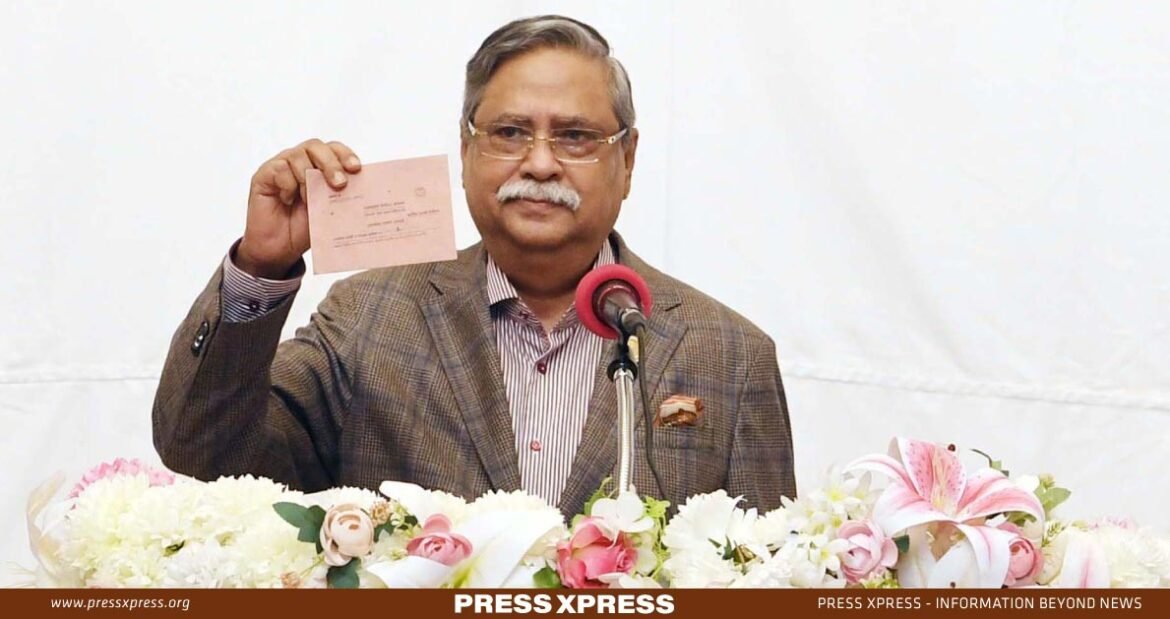“Voting stands as the fundamental right in a democracy. It’s our civic responsibility to cast our vote, allowing individuals to voice their democratic choices through the ballot”
– President Mohammed Shahabuddin
Voting stands as a cornerstone of democracy, a fundamental mechanism through which citizens engage in the process of selecting their leadership.
As Bangladesh’s 12th Parliamentary election is scheduled for January 7, President Mohammed Shahabuddin cast his vote in the 12th parliamentary elections on Wednesday (January 3) through the postal ballot from Bangabhaban.
You can also read: Bangladesh Ready for Peaceful Elections Amid Opposition Incitement
President’s wife Dr Rebeka Sultana also exercised her voting rights via postal ballot there as they are the voters of their hometown Pabna.
Highlighting the importance of voting as the most legitimate means of selecting leadership democratically, President Shahabuddin expressed hope for a peaceful and celebratory electoral environment with comprehensive participation.
Why the Pre-postal Ballot?
The provision for the head of state to cast a postal ballot is stipulated in Article 27 of the Representation of the People Order (RPO). This provision extends to registered voters, including those in legal custody, Bangladeshi expatriates, and polling officers, allowing them to vote via postal ballots in the upcoming general elections.

provision extends to registered voters, including those in legal custody, Bangladeshi expatriates, and polling officers, allowing them to vote via postal ballots in the upcoming general elections.
The Election Commission Secretariat has outlined four categories of voters unable to physically attend polling centers, enabling them to exercise their voting rights through postal ballots. This provision has been in place since the 9th Jatiya Sangsad Election, emphasizing inclusivity in the electoral process.
The Election Commission has actively campaigned to promote voting through postal ballots for this year’s parliamentary elections. Encouragement for postal voting was emphasized in an inter-ministerial meeting, directing relevant bodies, including Bangladesh’s missions abroad, to promote and facilitate postal ballot voting.
According to EC notifications, voters interested in utilizing postal ballots must apply to their constituency’s returning officer. The application should contain the voter’s name, postal address, and voter list serial number. The Returning Officers will evaluate the received postal votes within the stipulated time and declare final results after counting these ballots.
Hopes for Transparency
The 12th national election in Bangladesh, slated for January 7, 2024, marks the end of a tumultuous journey. With 27 registered political parties vying for 300 seats and 1,895 candidates, except for the BNP-led alliance, almost all parties participate. The exclusion of Jamaat-e-Islami due to a Supreme Court ruling further shapes the electoral landscape.
With an estimated 120 million voters and an equal gender split, 42,149 centers and 262,000 polling booths are primed to facilitate voting. Past elections averaged a 59% voter turnout, with extremes of 21% and 86%. However, the absence of the BNP-Jamaat alliance may impact this election, potentially yielding a 65-70% turnout at best, but realistically settling around 38-41%.
The inclusion of 30-35% hardcore BNP-Jamaat supporters could sway the outcome. Additionally, attracting new voters and encouraging female participation are pivotal. Ensuring a fair, peaceful environment is crucial, underlining the responsibility of the Election Commission, security forces, parties, and candidates.
A fair election stands as a pivotal development indicator for Bangladesh, crucial for instilling confidence domestically and internationally. The nation aspires to host the cleanest election in its history, a desire echoed by the populace and the newer generation. Over 200 foreign observers and local media personnel are set to monitor proceedings, emphasizing the significance of transparency.
A transparent election could propel Bangladesh from a Digital to a Smart nation. It serves as the bedrock for a robust government, weakening negative influences and fostering stability. A clean electoral process not only silences skeptics but also garners trust from development partners and investors, aligning Bangladesh with global standards—a collective aspiration for progress and prosperity.


